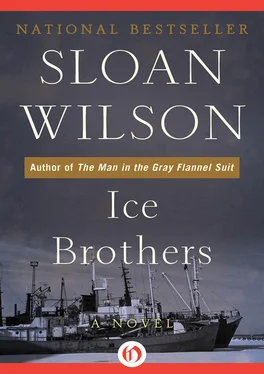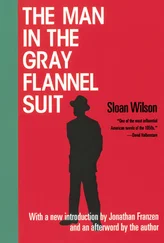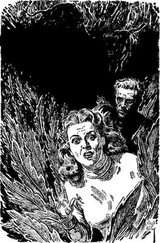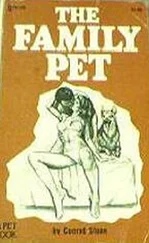Mowrey walked to the door of the pilothouse, opened it and sent the offending clipboard sailing into the sea. Then he went into his cabin, quickly drew a course on a chart with his black parallel rules, and bawled to the helmsman, “Come left slowly to two eight eight, goddamn your eyes.”
“I am coming left slowly to two eight eight,” Guns replied cheerfully.
“Greenberg!” Mowrey yelled as Nathan tried to duck out the door of the pilothouse.
“Yes sir?”
“If we get our ass sent to the fucking east coast of Greenland looking for fucking Kraut battleships, or out on weather patrol as sub bait, maybe you’ll get smart enough not to acknowledge any messages before we know what the fuck they are. Jesus, I thought you Sheenies were at least smart enough to cover your own ass.”
“I’m sorry, sir.”
“Get the hell out of here! Sweet Jesus, how can I fight a war with nothing but a Sheenie and a Yale for officers? At least don’t stand there and make me look at you! I don’t have any officers at all aboard this ship. All I’ve got is a fucking bucket brigade!”
Scuttling below as fast as possible, Nathan used his bucket again before sinking exhausted into his bunk. Gradually he realized that Newfoundland must be much closer than Greenland and that soon the violent motion of the ship might stop for a few days at least. Regardless of what terrors the delay might bring them, the prospect of even a few hours of relief seemed to him to be an unexpected chance to escape a disease which seemed worse than death.
The shore of Newfoundland was completely hidden in banks of fog, which soon made it difficult for the men on the bridge to see even the snub-nosed three-inch gun on the bow of the ship. They knew they had entered the broad, funnel-shaped mouth of Placentia Bay only when the hideous rolling of the ship gradually began to ease. Paul, who had always anchored as soon as possible when fog interrupted his cruises aboard the Valkyrie , watched Mowrey with admiration as the old sailor sat watching the flashing light on the dial of the fathometer and confidently gave the helmsman changes in course. What, he wondered, would he do if he suddenly found himself in command? Afraid of blundering onto invisible rocks, would he anchor here where the pilotbook said that fog often continued for weeks or even throughout the spring and summer months?
As the bay narrowed and the water shoaled, even Mowrey appeared tense as he stood on the port wing of the bridge staring through the fog into nothingness. Once he called for the engine to be stopped and they glided silently through a slight groundswell. Paul heard nothing but the lonely cries of invisible sea gulls, but Mowrey said, “I hear breakers about a mile to port. Bring her right slowly. Ahead slow.”
About twenty minutes later Paul heard a terrifying high hum in the void ahead which rapidly built to the throbbing of huge engines and the rush of water.
“Something on the starboard bow!” the lookout yelled.
“Left full rudder,” Mowrey said. “Ahead full. The bastard won’t hit us anyway. If he’s going that fast in this shit, he’s got radar.”
Almost as soon as he had spoken, the bow of a destroyer loomed from the fog ahead, and suddenly the long, low hull of the powerful ship was only three hundred yards abeam of them. Near the top of her short mast a screen which looked like wire mesh slowly revolved.
“He’s got radar all right,” Mowrey said. “You’d think they’d give it to the Greenland Patrol, but before we get it, every admiral’s barge will have a set, even in the goddamn South Pacific, where they never get fog. The Coast Guard is part of the navy in time of war until it comes time for getting the new stuff.”
“The radar they have in production is still pretty primitive,” Green said. Now that the ship was no longer rolling heavily, he already sounded and looked like a new man.
“What do you know about radar?” Mowrey barked.
“I helped a little with some of the R and D at General Electric.”
“Then I don’t wonder that they say that the thing never works once you get to sea,” Mowrey said. “Come right to course three two zero, damn it. Ahead half. And lookouts, keep your eyes peeled! If you don’t have radar, you got to have eyes, ears and brains. No wonder they give it to the navy. That’s the only way those poor bastards can find their way around.”
As they reached the narrow end of the bay, they suddenly emerged from the banks of fog, finding themselves surrounded by a stern landscape of rocky cliffs and granite hills which rolled back from the sea, not much different in shape from huge ocean waves. Ahead of them loomed the great naval base of Argentia, a collection of perhaps a hundred great gray ships of all kinds, both merchant and navy, anchored and moored to wharves which spread out from a city of Quonset huts and hastily erected warehouses. A blinker light on a steel tower by the edge of the harbor flashed at them.
“Captain, he wants our identification,” Flags, a blond young signalman called from the port wing of the bridge.
“What does he think we are, a fucking submarine?” Mowrey replied. “Tell him we’re the U-2 out of Hamburg, Germany. Tell him we’re looking for his biggest aircraft carrier.”
“Do you really want me to say that, sir?”
“Christ, just send him identification signals and request berthing instructions. Sooner or later you bastards are going to have to learn to shit without asking me how to wipe your ass.”
The lights flickered for what seemed to be a long while before Flags said, “Proceed to small ship wharf and moor outboard minesweeper Redbird. ”
The Redbird proved to be a trawler much like the Arluk , except that she was navy, not Coast Guard, and was painted gray. She was moored at the end of a narrow slip between a refrigerator barge as big as a warehouse and a nest of Canadian corvettes. The confined space and an outgoing tidal current which swept through the harbor like a fast river made ordinary maneuvering impossible.
“Put three big fenders on the port bow and get the number two line out fast when I give the word,” Mowrey called in the curiously pleasant voice he used when he wanted really instant obedience.
“Aye, aye, sir,” Boats, a red-headed boatswain’s mate who had boarded the ship just before it left Boston, answered and began coiling a heaving line in his hands.
To avoid losing control of his ship in the swift current, Mowrey approached the stern of the Redbird at a speed which struck Paul as incredibly reckless. Seeing the Arluk approach at such close quarters with a bone in her teeth, an ensign aboard the Redbird gave a shout of alarm which brought a dozen startled men to her rail.
“Mind the helm now,” Mowrey said in an even more pleasant voice as the bow of the 300-ton trawler seemed about to crash into the minesweeper. “Right full rudder.” After a pause that seemed endless as the bow of the Arluk swept across the length of the Redbird with almost no space to spare, he added, “Stop the engine. Back full. Get out number two. Shift your rudder.”
The Arluk suddenly squatted, spun and settled gently against the minesweeper with almost a sigh of content.
“Get out lines four, one and three,” Mowrey said. “Stop the engine. Move lively now, lads. In a current like this, you have to get lines out fast”
The Coast Guardsmen on the bow and well deck moved like a well-drilled football team, but one of the navy men was slow to make a line fast to a bitt.
“Boats, go aboard that bird and show that lad how to make a line fast,” Mowrey said with genial tolerance.
“We’ve got it,” the ensign aboard the Redbird said. “Jesus, for a while there, skipper, I thought you were going to cut us right in half.”
Читать дальше












